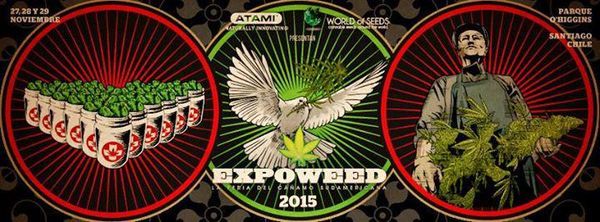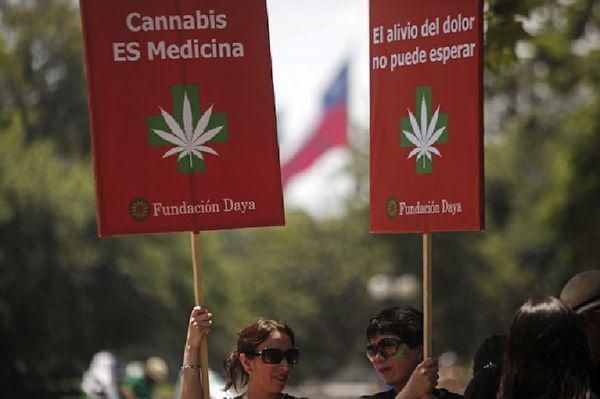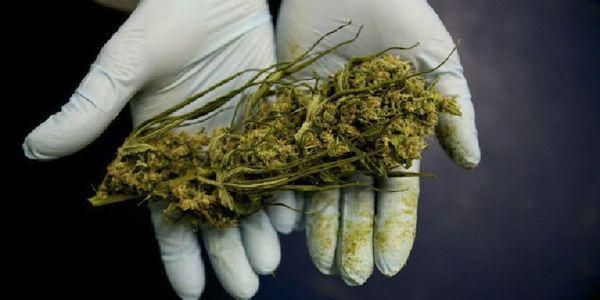- Everything is all set for the 4th edition of Expoweed 2015, Latin America's most important hemp fair, to be held at O'Higgins Park in Santiago de Chile. The event will feature more than 130 exhibitors and talks, where a range of professionals will present the latest cannabis sector news. This new edition also comes at a time when a bill to decriminalise the cultivation and consumption of marijuana for a different use has just been presented and pharmacies are expected to sell related therapeutic products very soon. We share with you the highlights of a fair that is already a key event on the global cannabis circuit.

Chile is the third biggest consumer of cannabis in the Americas, after the United States and Canada. In fact, over the last five years the number of users has increased from 75,981 in 2010 to 254,993 in 2014, and 62.2% of current users are young people 25 and under, according to the latest study by the Chilean National Drug Observatory. With figures like this, it is no wonder that South America's biggest hemp fair is held in the country.
Expoweed will be back from 27-29 November, raring to go. It will take place at the Parque O'Higgins, in the city of Santiago, under 8,000 square meters of tents. The event will boast more than 130 exhibitors of the best brands of cannabis, from Chile and all around the world, along with the latest technologies, growing techniques, seeds and all kinds of paraphernalia. And, of course, Dinafem will also be there: you'll be able to find us at Stand 63.
As usual, in addition to the displays, attendees can learn about and appreciate the situation in Chile thanks to the "Hemp Forum," a space to host more than 10 talks by Chilean and international experts, who will discuss medical use, activism, legalisation, cultivation and industrial hemp. Speakers will include the well-known Marc Emery and Paul Stanford.

The event will also include participation by several leading Spanish experts in the sector, like the philosopher and writer Antonio Escohotado, a professional whose research has focused on the study of various substances, and who has always opposed prohibition. Also contributing will be the biologist Cristina Sánchez, who conducts research on the use of cannabinoids against pain. Her work centres on understanding and clinically exploiting the anti-tumour potential of cannabinoids against breast cancer.
David Pere Martínez Oro, one of the Basque Country's most talented drug experts, will also attend the event. The professional is currently doing research on cannabis policies, and one of his latest publications is "Social Cannabis Clubs: Normalisation, Neoliberalism, Political Opportunities and Prohibition." A must read.
As could only be expected in Chile, also on hand will be Mamá Cultiva, a group of families of children with refractory epilepsy, created to join forces and successfully explore how the use of marijuana oil could be applied to the treatment of this disease. Their results, however, would not have been possible without the help of the Daya Foundation, formally established in 2014 and chaired by former actress Ana María Gazmuri.
This organization has been a key player in Chile's cannabis debate in recent times, with a steady media presence and great support by activists. A few months ago it secured the Chilean government's first permit to grow medical cannabis, aimed at creating oils for 200 cancer patients in the municipality of La Florida.

Just a few weeks ago the same association managed to win government approval for Latin America's largest plantation: nearly 7,000 seeds from plants for medical use. This initiative also aims to create cannabis-based medicines and promote research and knowledge regarding its applications.
Some 20 municipalities from across the country will participate in the financing of the project, and the drug will be developed by the Institute of Public Health and the Knop laboratory. It is estimated that the measure will benefit some 4,000 patients suffering from cancer, refractory epilepsy or chronic pain. In this way the country stands at the forefront of medical cannabis use, although many have protested that the allocation decisions, both for plantations and the development of drugs, have been made in an arbitrary manner.
However, those most in need of them in Chile are confident that the products developed will be better than those now on the market, and that the medicines produced will be affordable compared to imports. However, many have been critical of the situation, as they believe that the State should regulate the existence of other plantations, in addition to the two approved thus far.
A few days ago James Burrows, Undersecretary of Public Health, announced that the Ministry of Health will authorise the registration of drugs containing cannabis, which may be sold in pharmacies starting next December, subject to prescription-only distribution. Thus, these medicines will be taken off the prohibited list and be authorised after the decrees completely barring the sale of cannabis-based substances are modified.

There is no doubt that in recent months a new scenario for marijuana in the country has taken shape, albeit with some variations. Last July the Chilean Chamber of Deputies approved a bill to decriminalise the cultivation of marijuana, as well as its private consumption for spiritual, medical or recreational purposes.
In the beginning the aim was to pass legislation allowing users to carry amounts of up to 10 grams, and grow up to 6 plants. It was also specified that those who need medical marijuana would have to have a prescription.
In recent days the Executive has modified some aspects of the bill, setting the number of plants permitted per household at just one, and the possession limit at two grams. Thus, the new proposal will allow one to carry up to four joints - which means that many consumers will continue to be subject to prosecution.
Those who sow, plant, cultivate or harvest a cannabis plant without authorization will also be in violation of the law, subject to imprisonment and fines, unless they can prove that it is for personal consumption in the short-term. The change has sparked much controversy on the social networks:there aresome who believe that home cultivation for such small amounts of marijuana is not realistic, and some argue that the measure will continue to foment illegal purchasing.

To understand what is happening in Chile it is beneficial to visit a fair like Expoweed, a pleasant experience at which, in addition to learning, one can enjoy the regularisation process that is occurring in the Andean country from many different perspectives.
The event will also feature the usual concerts, including the Chilean funk rock group Chancho de Piedra, the folk rhythms and progressive rock of Los Jaivas, and the Spanish vocalist Mala Rodríguez (La Mala).
It will also include several relevant areas, such as "Grow Your Rights," where civil society's main cannabis organisations will be on hand. Meanwhile, in the "Medical Zone" a team from the Daya Foundation, made up of doctors and trained staff, will be there to field medical users' questions. Of course, fun is guaranteed thanks to other recreational spaces designed just for relaxation, kids, and food.
Given the circumstances and the progress that Chile has witnessed in recent months, this is a must event, which since 2012 has striven to establish itself as a meeting, information, dialogue and education forum revolving around the culture of cannabis and the plant's legal applications. This makes it not only a strategic happening amongst Latin America's cannabis fairs, but also one of the largest on the world circuit. What is clear is that this Expoweed 2015 comes at a strategic and also turbulent time for the history of marijuana in the country, and one that we at Dinafem do not intend to miss.



Comments from our readers
There are no comments yet. Would you like to be the first?
Leave a comment!Did you like this post?
Your opinion about our seeds is very important to us and can help other users a lot (your email address won't be made public).